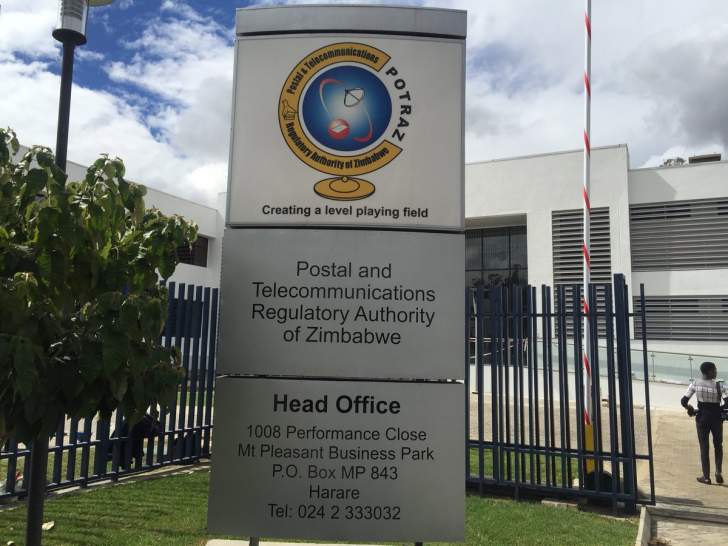|
Getting your Trinity Audio player ready…
|
With telecommunications access becoming increasingly poor and data unaffordable for many Zimbabweans, content creators are petitioning mobile network operators and relevant stakeholders to urgently address the matter.
On one hand, the Content Creators Network has noted with concern, the recent data price increase by the country`s largest mobile internet service provider, Econet. The network argues that the increase, which further places internet connectivity beyond the reach of many, comes at a time when the country is experiencing a third Covid-19 wave whose recommended mitigation measures include remote working.
“Working from home is possible in the presence of stable and affordable internet connectivity. However, the latest move by Econet has complicated matters as the new prices threaten to eat further into the already subdued salaries being earned by workers. The price hikes have a risk of limiting people’s access to the internet and keeping consumers offline, thereby infringing on the right to access information.
“Content Creators Network ZW calls on Econet to reconsider the new prices, as they have an opportunity to save lives by ensuring it enables those who are able, the chance to work from home. We urge the mobile network operator to meet the consumer halfway as many are relying on the internet to earn a living and support their families.”
The network recommended that the price hikes should be aligned with people’s incomes and should be sensitive to the times we are currently in – the COVID-19 lockdown.
Fungai Mandiveyi, the Econet Wireless Group Media and Corporate Communications Executive, was not available to comment about the matter by the time of going to print.
The Zimbabwe Online Content Creators (ZOCC), which comprises more than 150 online and digital players in Zimbabwe – in its petition seen by Spiked Online Media addressed to the Minister of ICT, Postal and Courier Services Dr. Jenfan Muswere; Minister of Information, Publicity and Broadcasting Services, Hon. Monica Mutsvangwa; the Director-General, Postal and Telecommunications Regulatory Authority of Zimbabwe (Potraz), Dr. Gift Kalisto Machengete; Econet Chief Executive Officer, Dr. Douglas Mboweni; NetOne Acting Chief Executive Officer Mr. Raphael Mushanawani; Telecel Chief Executive Officer, Mrs. Angeline Vere; TelOne Managing Director, Mrs. Chipo Mtasa; PowerTel Managing Director, Mr. Maminimini; Liquid Telcom Managing Director, Mr. Wellington Makamure; Africom Chief Executive Officer Rudo Mudavanhu; and Dandemutande Chief Executive Officer, Mr. Never Ncube, said many Zimbabweans can no longer afford data.
Below, we publish the contents of the petition:
“Expressing solidarity with all affected data consumers, who are at most, consumers of our content. Issues of affordability are of utmost most importance, without which a basic human right would have been withheld. Appreciating the fact that the Postal and Telecommunications Regulatory Authority of Zimbabwe (POTRAZ) last approved data and Telecommunications costs last year in September. Cognisant of the fact that Zimbabwe data ceiling rates are still at $1.27 per Mb hence $1270 per gig.
“Noting the fact that a precedence has been set that whenever one mobile network tweaks their data promotion within the authorised tariffs, all other players follow suit within a fortnight. Highlighting that these ceiling tariffs are way too steep for the general public, both content consumers and creators, who are still earning less than $150 USD per month. Appreciating the fact that businesses in the telecoms sector need to be sustainable and stay afloat as viable enterprises. Greatly concerned that the same important sector has not been supported via government support systems to cushion consumers.
“Here is our proposed way forward:
1. We recommend that government takes the telecommunications sector seriously by providing subsidies and supporting mechanisms.
2.Government should also prioritize these essential service providers in its weekly foreign currency auction system in order to minimize data landing costs and other operational costs.
If the players are not supported through these initiatives like the forex auction system, operators are forced to use the parallel market route to access the much-needed foreign currency.
The costs will then be extended to the consumers.
3. Government should invest heavily in other alternative sources of power like the solar, wind to reduce extra costs associated with power cuts.
4. The government should also improve the salaries of civil servants. This will subsequently improve affordability.
The disparity between revenue earned and spent must always be considered when our prices are being pegged so that basic human rights issues like access to the Internet are not infringed upon.”
